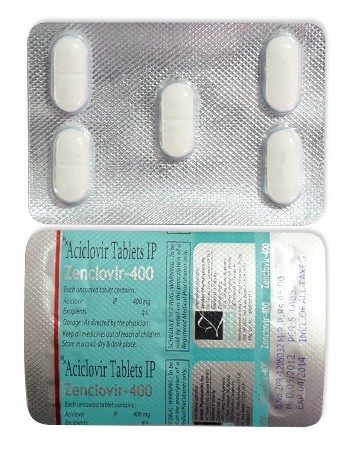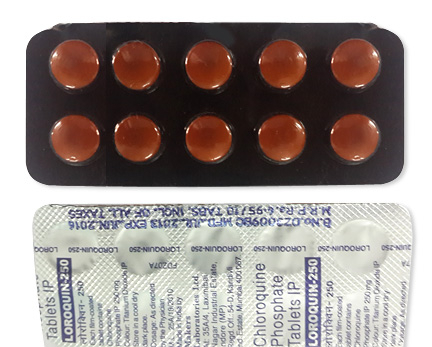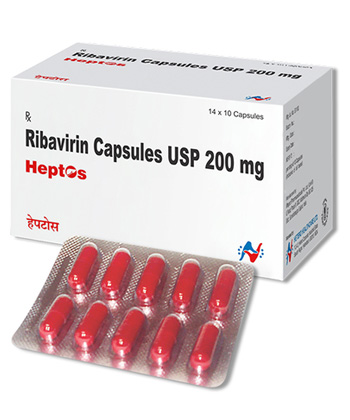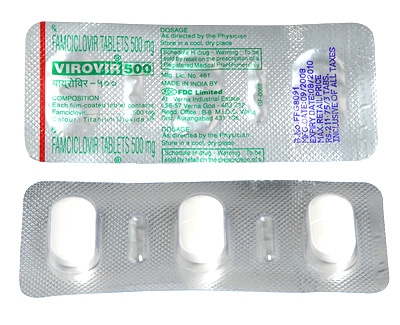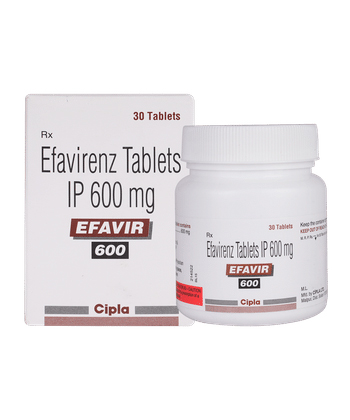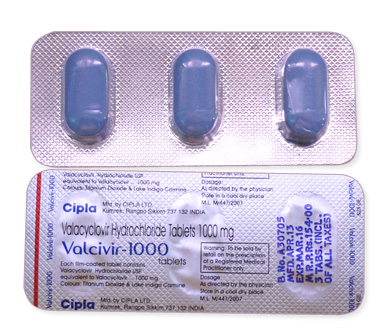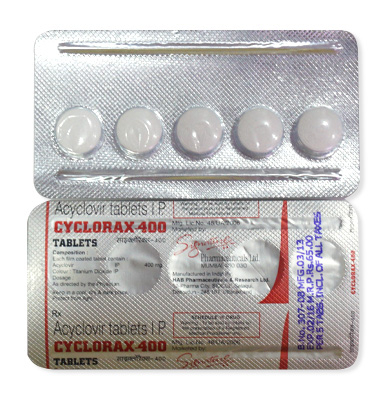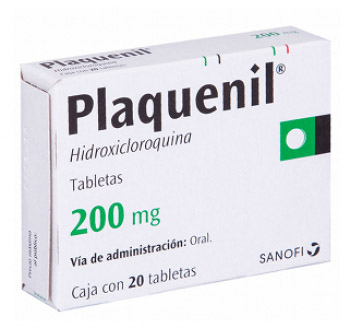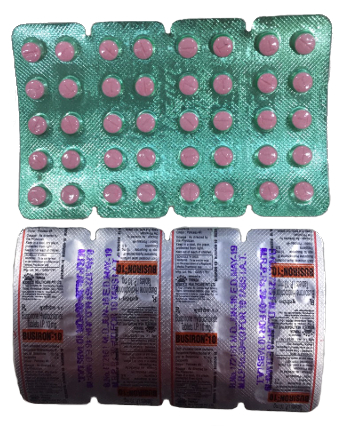Monoket
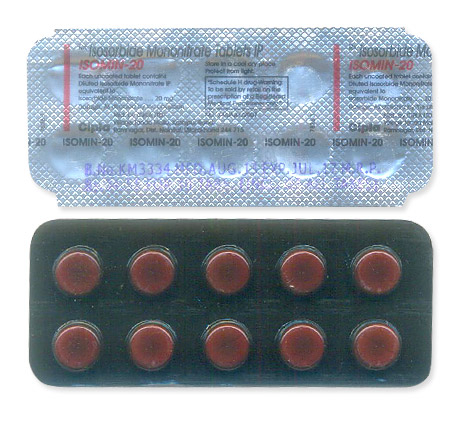
Monoket
- Monoket is available in pharmacies worldwide with a valid prescription (Rx only), not OTC. Delivery options exist internationally, typically in discreet packaging within 5-14 days.
- Monoket (isosorbide mononitrate) prevents angina pectoris by relaxing blood vessels, reducing cardiac workload and improving coronary blood flow through nitric oxide release.
- Usual dosages: Immediate-release tablets: 20 mg 1-2 times daily; Extended-release: 40-60 mg once daily. Requires a daily 10-12 hour nitrate-free interval to prevent tolerance.
- Administered as oral tablets—immediate-release (10 mg, 20 mg) or extended-release (40 mg, 60 mg)—swallowed whole, with or without food.
- Onset time: Immediate-release tablets start working within 30-60 minutes; extended-release formulations have slower onset.
- Duration of action: Immediate-release lasts up to 8 hours; extended-release provides effects for 12-16 hours.
- Avoid alcohol consumption—it may worsen side effects like dizziness, lightheadedness, and severe hypotension.
- The most common side effect is headache (very frequent). Other common effects include dizziness, flushing, and nausea.
- Would you like to try Monoket without a prescription?
Monoket Basic Information
| Attribute | Details |
|---|---|
| INN | Isosorbide mononitrate |
| Brand Names | Monoket (Australia/Global), Mono-Card-SK (Germany), Ismo (UK) |
| ATC Code | C01DA14 (Cardiac therapy → Nitrates) |
| Forms | Immediate-release tablets (10mg/20mg), extended-release (40mg/60mg) |
| Australian Manufacturers | Zentiva, Bayer Australia |
| Registration Status | Approved by TGA Australia, EMA EU, FDA US |
| Classification | Prescription-only (Rx) |
Monoket contains isosorbide mononitrate as its active ingredient and is classified as a nitrate-based antianginal medication. In Australia, it's primarily distributed as tablets, available in immediate-release options (10mg or 20mg strength) and extended-release formulations (40mg or 60mg). Unlike some medications, Monoket isn't available as over-the-counter medication and requires a valid prescription from your doctor. Major pharmaceutical companies like Bayer Australia and Zentiva manufacture Monoket, ensuring proper quality control. The Therapeutic Goods Administration (TGA) maintains strict oversight of Monoket in Australia as part of its role in safeguarding therapeutic products registered through its regulatory pathway.
Pharmacology of Monoket
Monoket works by converting to nitric oxide within the body, triggering relaxation of vascular smooth muscle. This process causes systemic vasodilation, reducing cardiac workload and oxygen requirements. Immediate-release tablets begin working within 30-60 minutes and provide effects lasting 4-6 hours, while extended-release formulations start working within 1-2 hours but maintain effects for up to 14 hours. The liver handles most metabolism through pathways with minimal CYP enzyme involvement, and elimination primarily occurs through the kidneys.
Critical interactions include absolute contraindication with PDE-5 inhibitors like sildenafil due to severe hypotension risks. Alcohol consumption must be avoided because it heightens dizziness and low blood pressure risks. Potential tolerance development requires structured dosing schedules featuring nitrate-free intervals. According to Australian guidelines, patients requiring nitrate therapy may need careful monitoring when combining multiple vasodilators.
Approved Indications and Off-Label Uses
The Therapeutic Goods Administration officially approves Monoket for preventing angina attacks in chronic angina pectoris patients. It's not intended for acute angina episodes but helps reduce frequency when taken regularly. Some cardiologists occasionally prescribe it off-label in Australia as adjunct therapy for heart failure management under specialized supervision.
Special population considerations include avoiding Monoket during pregnancy (TGA Category C) due to insufficient safety data. Pediatric use isn't recommended, and elderly patients often begin with lower doses due to increased sensitivity. Kidney impairment requires extra monitoring, though specific dosage adjustments aren't typically necessary, unlike hepatic impairment which warrants dose reductions. Cardiac conditions like hypertrophic cardiomyopathy need careful evaluation before prescribing, as recommended by Heart Foundation guidelines.
Dosage and Administration Guidelines
| Formulation | Initial Dose | Maximum Daily Dose | Timing Recommendations |
|---|---|---|---|
| Immediate-release tablet | 20mg twice daily | 80mg | Morning and early afternoon doses with 7-8 hour gap |
| Extended-release tablet | 40mg once daily | 60mg | Morning dose with breakfast |
Take Monoket exactly as prescribed - immediate-release tablets typically twice daily (morning and afternoon), while extended-release versions often as single morning doses. Maintain consistent timing to prevent tolerance development, ensuring 10-12 daily nitrate-free hours. Store tablets below 25°C in dry conditions.
If you miss a dose, skip it unless there's significant time before your next scheduled dose - never double doses. Administer doses whole without crushing extended-release formulations. Significant hepatic impairment requires starting with lower doses and careful titration. Important restrictions include avoiding alcohol completely and preventing concomitant use with erectile dysfunction medications. Pharmaceutical reviews emphasize maintaining therapeutic diaries and blood pressure journals when initiating therapy.
Safety Profile & Precautions for Monoket
Monoket carries specific contraindications that require careful consideration. Absolute restrictions include existing hypotension (dangerously low blood pressure), known hypersensitivity to nitrates, recent heart attacks with compromised blood flow, and simultaneous use with erectile dysfunction medications like Viagra or Cialis. These combinations can trigger life-threatening drops in blood pressure. Caution is also advised for those with glaucoma, hypertrophic cardiomyopathy, or severe kidney/liver issues.
Common reactions affect many users during initial treatment phases:
- Persistent headaches (occurring in over 50% of users initially)
- Dizziness or lightheadedness (15-20%)
- Flushing or nausea
More concerning but less frequent issues include severe hypotension (under 5%) causing fainting spells. Rarely, syncope may occur during sudden position changes. While some describe Monoket headaches as intense, they typically improve within days as the body adjusts. Blood pressure requires monitoring when starting therapy since nitrate-related headaches often coincide with therapeutic effects. Tolerance development can be prevented by maintaining a daily nitrate-free period - typically 8-10 hours without medication. The Therapeutic Goods Administration currently hasn't issued boxed warnings for Monoket.
Patient Experiences Using Monoket
User reviews offer valuable insights into Monoket's real-world performance. On platforms like Drugs.com, it holds a 3.8/5 average rating. Patient forums such as Reddit's angina communities frequently mention its effectiveness in preventing chest pain, with users labeling extended-release versions "game-changers" for daily routine. Multiple contributors confirm sustained improvement in walking tolerance and reduced nitroglycerin spray reliance.
Despite benefits, adjustment periods pose challenges. Approximately 60% of users report initial headaches dissipating within several weeks when gradually increasing doses. Dosing timing proves critical - those maintaining prescribed nitrate intervals (like skipping evening doses) notice minimized tolerance development. Common complaints involve headaches recurring after dosage increases and occasional dizziness when standing suddenly. Practical adherence strategies include setting phone reminders for pill-free windows and using blood pressure diaries to track medication balance with symptoms.
Alternative Angina Treatments Compared
Several alternatives to Monoket exist for angina management, with effectiveness and cost varying considerably.
| Medication | Monthly Cost (AUD) | Effectiveness Profile | Key Considerations |
|---|---|---|---|
| Isosorbide Dinitrate | $15-$30 | Similar to Monoket | Requires 2-3 daily doses, more frequent headaches |
| Nicorandil (Ikorel) | $40-$60 | Potentially stronger for refractory angina | Carries ulceration risks, requires GI monitoring |
| GTN Spray | $20-$35 | Fast-acting emergency relief | Not suitable for prevention/tolerance develops rapidly |
Australian prescribers typically position beta-blockers or calcium channel blockers as initial therapy. Monoket often serves as secondary prevention either alongside these or for beta-blocker-intolerant patients. Cost-effectiveness analyses favor Monoket's extended-release forms given their once-daily dosing and PBS subsidised pricing. When switching therapies, cardiologists emphasise staggered transitions rather than abrupt changes to prevent rebound angina episodes. Individual factors like co-existing conditions and out-of-pocket expenses significantly influence treatment pathway choices.
Monoket Australian Market Insights
You'll mainly find Monoket in pharmacies alongside PBS Authority prescriptions like Catena and HelpNet scripts. Its PBS listing requires special approval but helps keep costs manageable for chronic angina patients. Pricing sits around $20-30 for immediate-release packs (60 tablets) and $30-45 for extended-release versions (30 tablets). Demand shows seasonal patterns - pharmacies often note increased requests during colder winter months when heart symptoms may flare up due to weather effects on circulation.
Packaging options include blister packs ranging from 20 to 60 tablets, with some bottle presentations also available across pharmacies. Inventory management strategies typically account for its long-term usage - most pharmacies ensure reliable stock levels for australia's prescription refills without major supply disruptions outside manufacturing issues.
Monoket Research & Developments
Recent medical investigations continue to strengthen Monoket's positioning. A 2023 Journal of the American College of Cardiology meta-analysis demonstrated significant angina episode reduction compared to placebos. Global patent expiry opened pathways for australian generic alternatives - over 12 suppliers entered the market including Sigma Pharmaceuticals and Sandoz Australia, all maintaining therapeutic bioequivalence with cost benefits.
Future treatment directions include gene-based dosing trials scheduled for 2025 exploring personalized nitrate tolerance patterns. Cardiovascular researchers also examine combination therapies pairing isosorbide mononitrate with emerging anti-anginal agents, potentially offering enhanced symptom control without escalating tablet burdens for those managing chronic conditions.
Monoket FAQ
Can alcohol be consumed with this heart medication? Avoid alcohol entirely when taking Monoket due to dangerous low blood pressure risks enhancing side effects like severe dizziness and fainting. Management after missing tablet timing? Skip permanently omitted doses if next scheduled tablet within 4 hours - never ingest doubled quantities risking overdose and hypotension complications. Long-term safety profile details? Suitable for extended angina management when using prescribed nitrate-free intervals (typically 12+ hours daily) preventing medication tolerance development. Medicare coverage eligibility? Available under Pharmaceutical Benefits Scheme with approved Authority Required prescriptions meeting clinical criteria for subsidy support. Emergency usage during active chest pain? Never intended for acute angina attacks - always keep prescribed glyceryl trinitrate spray rapidly relieving sudden episodes instead.
Guidelines for Proper Monoket Use
Administration rhythms follow circadian symptom patterns - take immediate-release tablets around 7am and 2pm maintaining optimum coverage while extended-release versions work best swallowed whole with breakfast. Essential precautions:
- Avoid PDE-5 inhibitors (Viagra, Cialis) preventing life-threatening hypotension
- Prevent storage degradation by keeping containers sealed below 25°C away from moisture
- Never abruptly cease long-term treatment risking rebound angina symptoms
Maintain nitrate-free windows every 24-hour cycle - typically overnight - preserving drug effectiveness long-term. Schedule regular blood pressure reviews and consistently consult official Consumer Medicine Information leaflets clarifying usage complexities.

